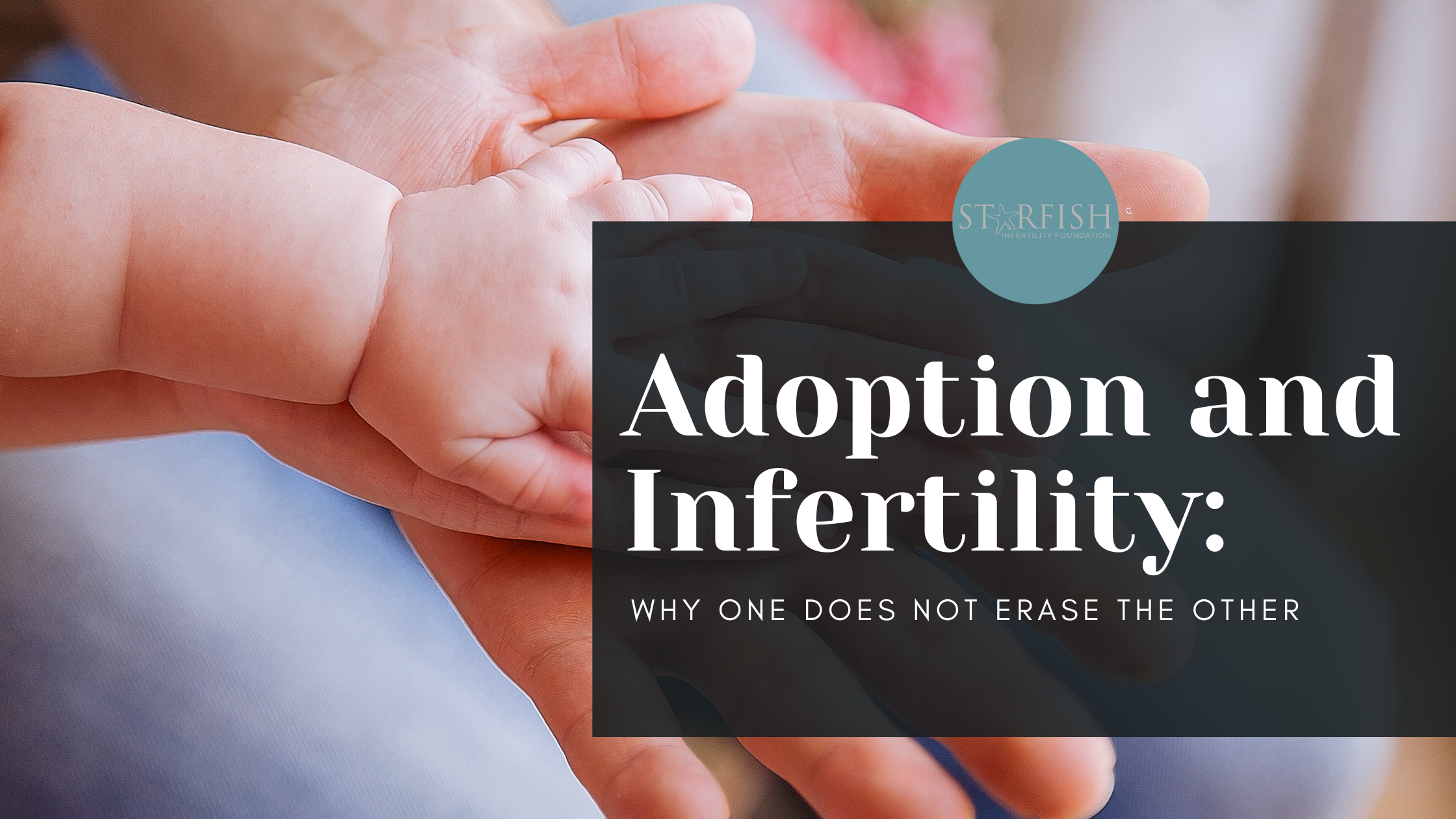Infertility and Adoption: Why One Does Not Erase the Other
For couples facing infertility, well-meaning friends and family often offer a simple solution: “Why don’t you just adopt?” While it may seem like a kind and practical suggestion, this phrase can be deeply hurtful. It implies that adoption is an easy fix for the pain of infertility, overlooking the emotional, financial, and logistical realities of both journeys. The truth is, infertility and adoption are two completely different experiences. Adoption is not a cure for infertility, nor is infertility a prerequisite for adoption. Let’s break down why this phrase is problematic and how we can offer better support to those navigating infertility.
Infertility is a Profound Loss
Infertility isn’t just about the inability to conceive—it’s a life-altering grief that affects every part of a person’s identity. Many people grow up assuming they will one day experience pregnancy, feel a baby kick, and see a child who shares their features. When that dream is shattered, it’s not something that can be easily replaced. Telling someone to “just adopt” dismisses the heartbreak of infertility. It’s like telling someone who lost a loved one to “just get a new family member.” It minimizes the depth of their loss and the complicated emotions they are processing.
Adoption is Not a Simple Alternative
Adoption is a beautiful way to build a family, but it is not an easy or quick solution. The process is often long, expensive, and emotionally challenging. Depending on the type of adoption—domestic, international, or foster-to-adopt—the process can take years.
Here are just a few of the hurdles hopeful adoptive parents face:
• Financial Costs – Adoption can cost anywhere from $20,000 to $50,000 or more, depending on the agency, country, and legal requirements. Many families go into debt
trying to afford it.
• Legal Complexities – Adoption laws vary by state and country. Even after placement, there can be long waiting periods before an adoption is finalized.
• Emotional Uncertainty – Birth parents sometimes change their minds, which can be devastating for adoptive parents. The emotional toll of failed adoptions is often
overlooked.
• Ethical Considerations – Ethical adoption requires ensuring birth parents are fully supported and not pressured. Adoptive families must navigate complex ethical concerns to make sure their adoption is handled responsibly.
Adoption Doesn’t Erase Infertility Grief
Even for those who do choose adoption, infertility remains a part of their story. Loving an adopted child does not mean they don’t still mourn the loss of the biological children they were unable to have. Adoption and infertility are separate journeys, and it’s possible to experience joy in adoption while still feeling sadness about infertility.
Parents who adopt after infertility may also struggle with reminders of their past grief—baby showers they never had, pregnancy announcements that sting, or even medical complications from past fertility treatments. Adoption doesn’t make those feelings disappear.
A Better Way to Support Someone Facing Infertility
Instead of offering “just adopt” as a response, consider these ways to support someone struggling with infertility:
• Acknowledge their pain – Say, “I’m so sorry you’re going through this,” instead of offering solutions.
• Listen without judgment – Let them express their feelings without trying to fix the situation.
• Respect their choices – Some couples may choose to pursue adoption, fertility treatments, or live child-free. Support their decision, whatever it may be.
• Educate yourself – Learn more about infertility and adoption so you can have more compassionate conversations. Infertility is deeply personal, and every person’s journey is different. Adoption is a wonderful way to grow a family, but it is not a one-size-fits-all solution to infertility. Instead of assuming adoption is the answer, let’s offer empathy, understanding, and support for those navigating these complex paths.
Infertility is an incredibly personal and complex journey, and no single path fits all. Whether a couple chooses IVF, adoption, or another route, the most important thing we can offer is empathy and understanding. Instead of quick fixes, let’s create a community of support where those facing infertility feel seen, heard, and validated. If this post resonated with you, please share it with someone who may need to read it or feel supported. And if you or someone you know is in need of financial assistance with IVF, follow the link to apply for our IVF grant—we’re here to help make this dream a reality.




